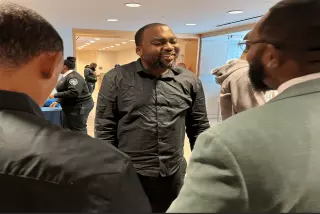‘Bang! You’re Dead!’ Once, That Was Child’s Play : Children: Far too many have lost hope in life, if not life itself, in gang-related shootings.
Ever meet a kid, reasonably healthy, who isn’t sure he’s going to live out the week? I have.
I’d like to put in a plea for him. He belongs to the 20% of our children who live in poverty. Those are the ones we keep saying should have a better education, more nourishing food, a warm, loving home, a head start.
Forget it. Those promises won’t cut it unless they give him back the most important quality poverty has taken from him--every kid’s right to believe he’s immortal.
You could look it up. It’s part of the childhood bill of rights that we used to scratch into the fresh cement of every new sidewalk in the neighborhood. It announced that all citizens under 16 were entitled to be an eternal, flying, dreaming mixture of Peter Pan and Superman. Membership allowed you to lie on your back, look at the sky and do absolutely nothing useful.
When I was young, dying was something you did when you were 70 or older. We knew about that from our grandparents. But kids didn’t die. That was a given. Kids lived forever.
Today, childhood’s God-given right to feel immortal is gone for too many kids. Long gone. These children are confronted everywhere by their own mortality. In movies. On TV. And, worse, by real life.
I hear about it at Legal Aid where I work as a volunteer interviewing families about to be evicted, trying to help them escape homelessness. Mothers have told me of mortal combat fought between drug dealers in front of their children in the laundry rooms of their apartments. Four-year-olds have explained to me that when you hear gunshots, you drop to the floor. Never, ever look out the window.
In elementary schools, the curriculum includes a shooting drill.
In my school days, we were secure in our immortality even at play. After a Hoot Gibson matinee, our favorite game was Cowboys and Indians. We would fall dramatically when a cowboy (or Indian) leveled a finger and shouted: “Bang! You’re dead.” Not for long. The fallen would leap up and shout, “I’m the other guy now.” No metal could touch us.
The games played out in front of the impoverished children I meet have real blood and paramedics and police with yellow tape to seal off the scene. Nobody jumps up and says, “I’m the other guy now.”
Any wonder they are so aware of their mortality? They know that they can be blown away tomorrow. And, strangely, the prospect doesn’t seem to haunt them. It’s the only childhood they know. In a way, this explains their atrocious behavior.
We talk longingly about the American Dream. The politicians, as one, promise to restore it. But dreams trade heavily on futures. And no child who lives with the premonition that he may die tomorrow can be conned into having long-range hopes or ambitions. You can’t sell a dream of a better life when it carries the proviso, “If you live long enough to have a life.”
They have dreams, all right. But they have to settle for short-termers to match their life expectancy. Their compressed dreams revolve around being accepted into gangs. Or participating in turf wars. Or going to school with a gun tucked in a waistband, as we have enabled thousands of 11-year-olds to do in order not to violate the right of 18th-Century militiamen to bear arms. These are the doable dreams of their stunted time frames.
If we really intend to alter the behavior patterns of so many of our children, we must somehow rekindle their inalienable right to believe that they are immortal. Without that, there is no great American Dream.
It is not enough to preach to them that life is good and life is full. We must persuade them that they have plenty of time to make lofty, long-range hopes come true because they are going to live forever. Or at least past childhood.
Let them believe once again that dying is reserved for people 70 and older, who have had the time to play out their dreams.
Make that 90 and older. I’m 72, and I can still dream.



